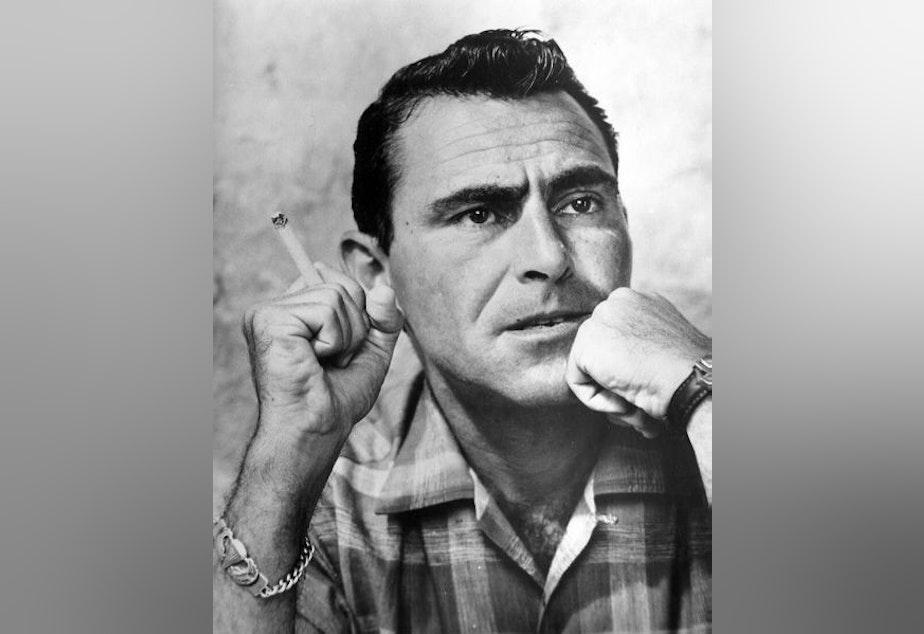When Radio Censors, Go For “The Twilight Zone”

Rod Serling may not be a household name, but his groundbreaking television show, The Twilight Zone, certainly is. Serling’s bumpy radio beginnings set the stage for the innovative program.
Serling broke into radio after winning a radio playwriting contest. He moved on to a program called Grand Central Station, which specialized in romance and light drama – not exactly what elevated Serling to fame.
He earned credibility as a staff writer but butted heads with his censors as his style and views strayed from radio’s sensibilities. In 1951, he had enough and quit radio.
He defended his position in an interview with Mike Wallace in 1959.
If you have the temerity to try to dramatize a theme that involves any particular form of social controversy then you’re in deep trouble. I went down fighting as most television writers do. Better to say something than nothing.
Sponsored
That year, The Twilight Zone was born after Serling negotiated for complete artistic control. It was a hit due to Serling’s inventive and thought-provoking set-ups.
He was finally able to shake off the radio censors and create his own vision.
I have never written beneath myself. I have never written anything I didn’t want my name attached to. Somebody asked me the other day if this means that I’m going to be a meek conformist. My answer is no, I’m just acting the role of a tired non-conformist.
Produced for the Web by Kara McDermott.

